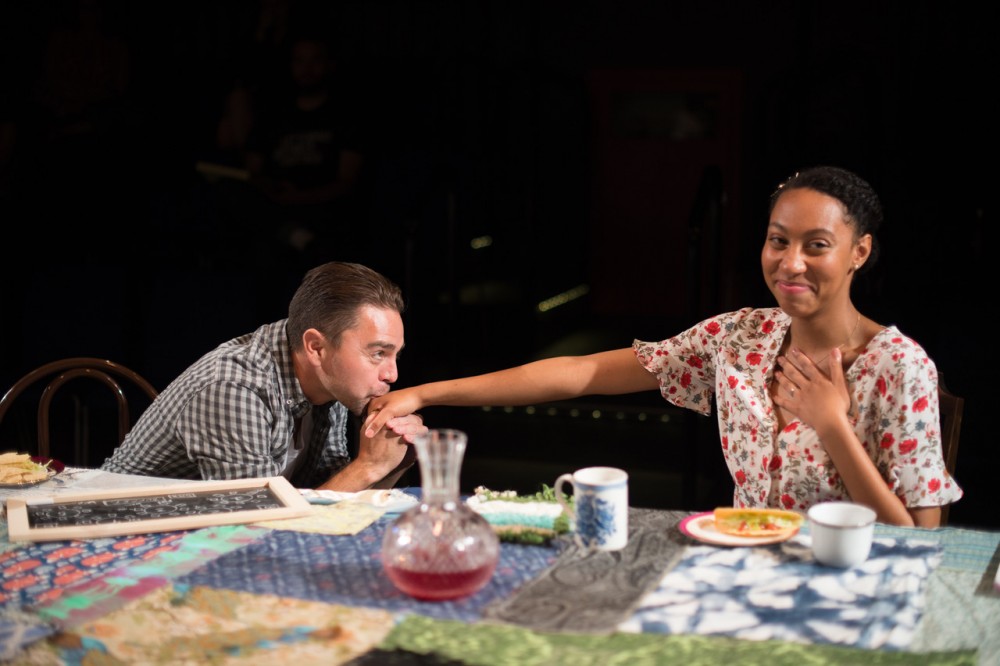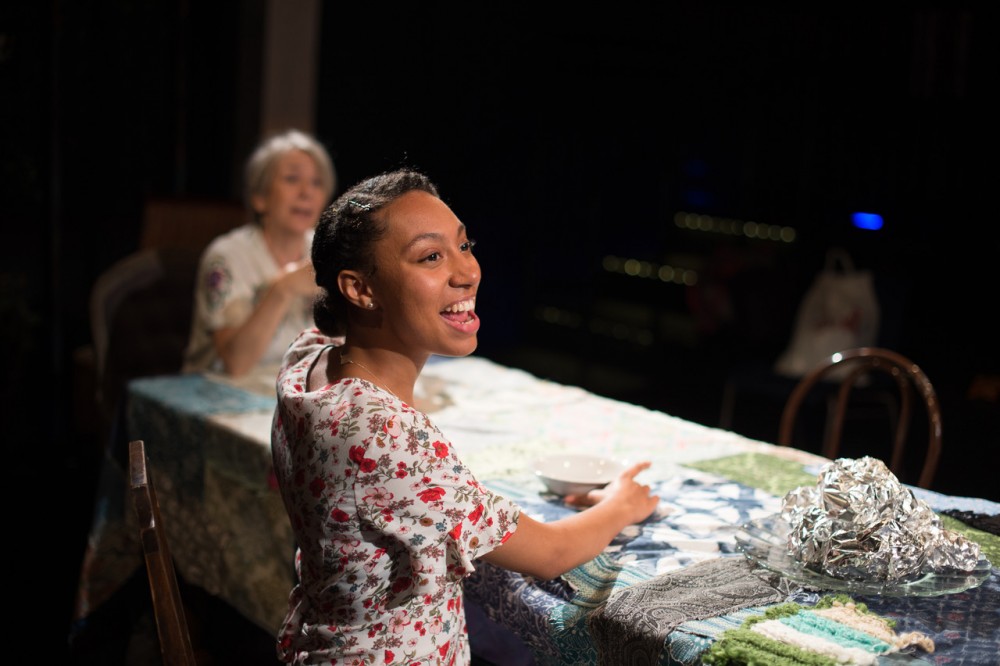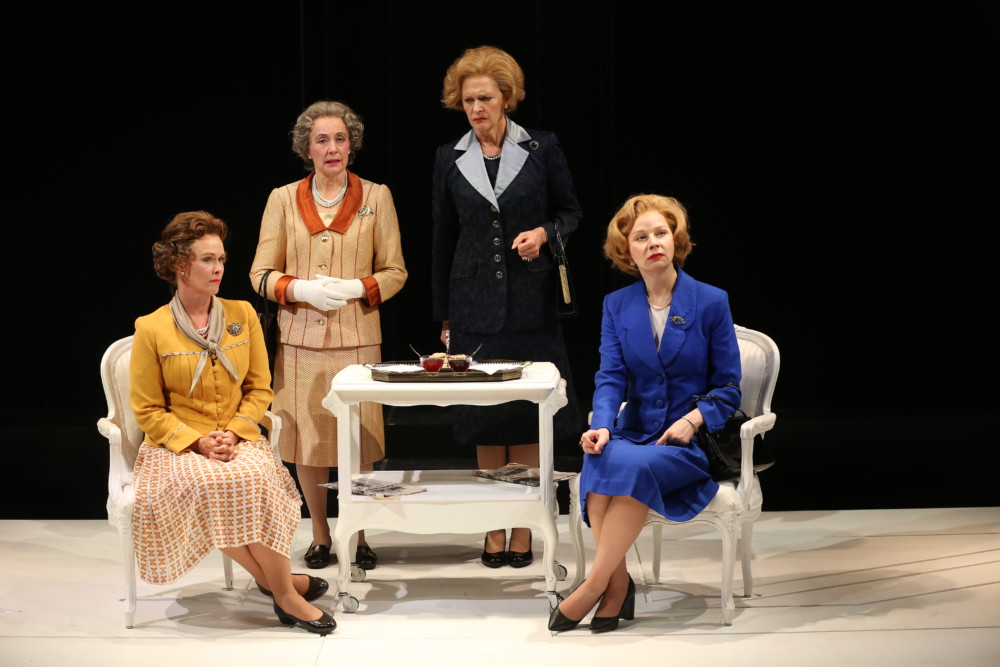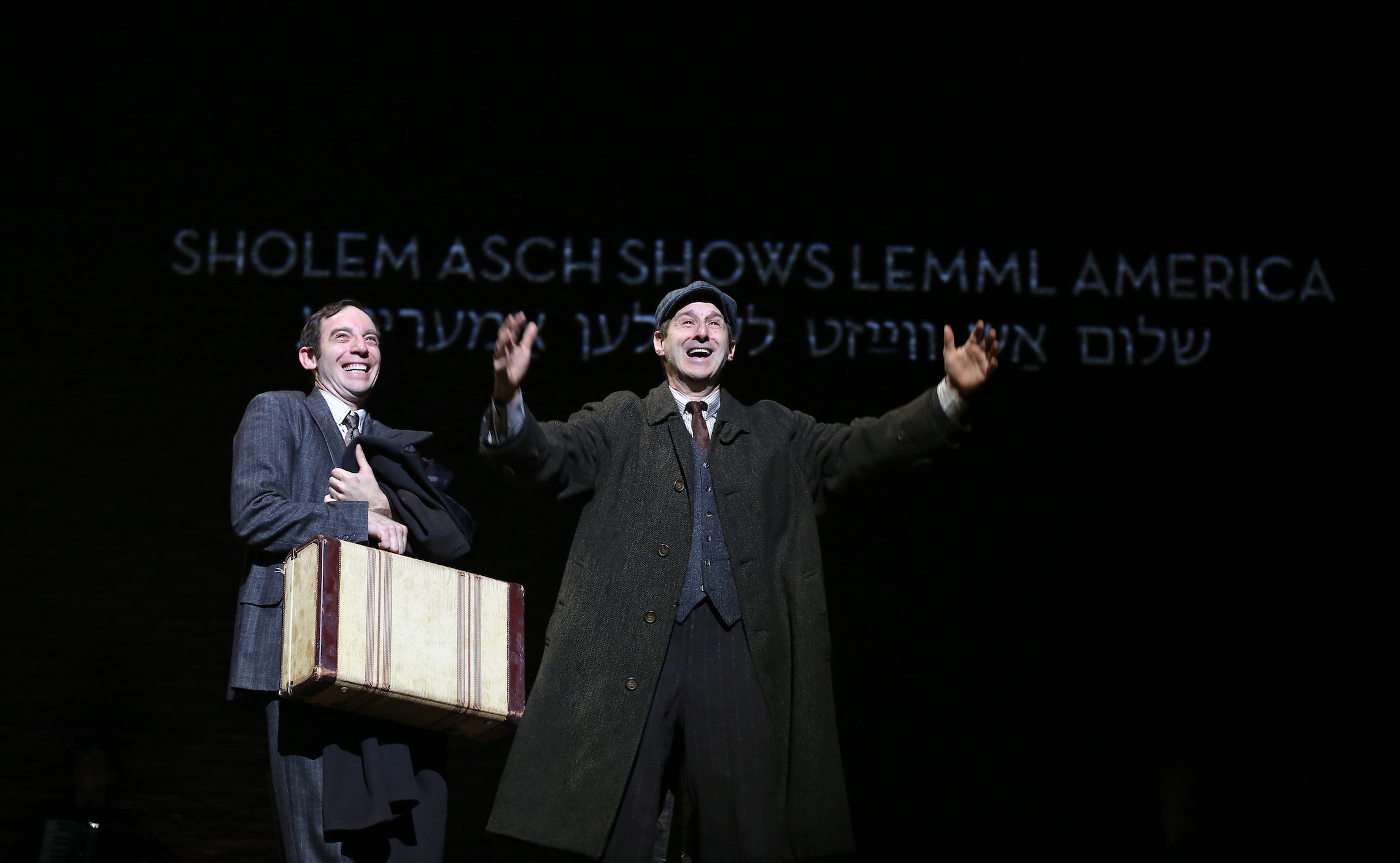by Cathy Hammer
Like its heroine Nadia, Eliza Bent’s new play The Beyoncé is on the road to self discovery. Described as nodding to Queen Bey, the piece is based largely on Anton Chekhov’s short story, The Fiancée, itself a light pencil drawing of a tale. The piece follows Nadia as she prepares to marry the wealthy Andre-Andre. Caught up in her mother Nina‘s excitement, Nadia has filled her head with visions of domesticity and babies. Her closest friend Sasha urges her to consider a more passion-filled alternative. (He doesn’t seem to care much about the details since he keeps encouraging her to be an archaeologist when her dream has been to be an anthropologist.) It is not until Andre-Andre gives Nadia a tour of the apartment that he has been designing for them — complete with Smurf blue furniture, a painting he made in his art class, twin beds, and an IKEA shower – that Nadia begins to realize this is not the life she wants. This man is sweet and clearly loves her, but he is also uncomplicated to the point of being uninteresting.
While old fashioned for today’s 20 somethings, Bent makes Nadia’s evaluation of traditional marriage and self expression interesting to explore. Through a combination of Nadia’s internal dialogue and outward exchanges, we deeply experience those moments when Nadia recognizes that she has the freedom to make different choices. Ms. Bent’s ability to use Chekhov as a springboard shines in her selection of sociological themes and her cadence. Present are all the Chekhov staples: the family estate setting, the moocher friend who urges her to fulfill goals that he has let slip through his fingers, and the observant underclass in the form of Consuelo, the housekeeper who is “almost family.” Bent is less successful with the Beyoncé portion of the equation. There is background music featuring the artist’s greatest hits flavored with balalaika. Unfortunately that is where Beyoncé makes her presence most felt. There is very little Sasha Fierce in the rest of the story and character development. Disappointingly, the only reason Nadia gives for calling Andre-Andre her “Beyoncé” is because it’s more fun to say. In fact, the strongest sisterhood is created between Nadia’s grandmother and her housekeeper.
Recent BFA graduate Regan Sims does a lovely job with Nadia. It’s an awkward role inconsistently requiring her to acknowledge the audience’s presence and on a few occasions refer to herself in the third person. Sims is best when she performs with a strong foil. Those include Adjusted Realists company member Maggie Low as her grandmother Gran Marfs. She is so comfortable in the role it is hard to imagine her as anyone else. Also excellent is Andrea Aranguren as as Consuelo, the most interesting and textured of Ms. Bent’s characters. Far less successful is Rachel McPhee‘s Nina. Like a bejeweled jingle bell, McPhee is over-the-top, forced, and jarring, rendering this interfering mother as a completely unsympathetic character. On the other side of the family, Rolls Andre brings a sweet mischievousness to the role of Pops and Jeremiah Maestas is a crazy in love Andre-Andre. The extended family is completed by Roger Manix’s mannered Sasha, who is given some of the comedy’s most clever lines.
Adjusted Realist co-founder Steven Kaliski’s direction is greatly constrained by the chosen configuration of the theater, with the audience seated on either side of a chunky set. Sam Transleau’s scene design is dominated by a long table which bifurcates the stage, leaving little room for anything beyond mealtime conversation. Along one wall is a little-used kitchen. The other end is defined by a garden trellis, which does more to set the proper mood on a minimal budget. Lighting designer Jessica Greenberg uses individual bulbs suspended over the table to give the look a warm center. Costumes by William Mellette are oddly boho and out of context. Rounding out the creative team is Andrew Lynch whose music and sound are spot on.
Though lacking in Ms. Knowles’s sassiness or energy – on Sunday, the performance ran nearly 15 minutes over the prescribed 75 minute run time – The Beyoncé is as pleasant a diversion as an afternoon in the countryside. While it does not bang open any doors, it does successfully explore what gentle circumstances can constitute a small-scale bold move.
Photos: Mia Isabella
The Beyoncé— A.R.T./New York Theatres Jeffrey and Paula Gural Theatre (502 West 53rd Street (at 10th Avenue). Runtime is 75 minutes with no intermission. Tickets are $25 – $30 for performances Tuesday – Saturday at 8pm; Sunday at 3pm. Please note: there are no performances Wed 8/1, Thu 8/2, Tue 8/7, and Wed 8/8. Call Brown Paper Tickets at 1-800-838-3006 or visit http://www.adjustedrealists.com. Ends Saturday, August 18.





















